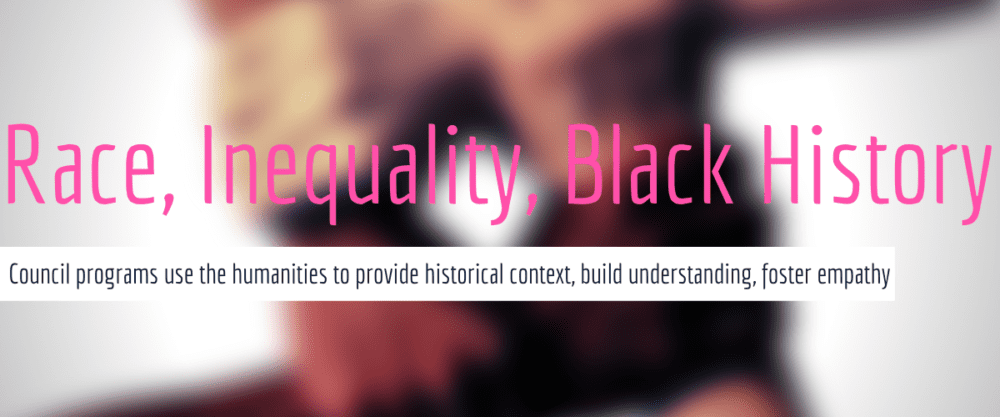Our role in moving humanities forward has not changed. It is our mission… to build a just and civil society by creating opportunities to explore our shared human experiences through discussion, learning, and reflection. It has been central to our work and all that we do. Like many councils, we are facing current challenges head on, listening to the needs of communities, and making sure that we help people see the world around them with new eyes. That is the beauty of learning. Sometimes what we see is painful, but the lessons we learn can help us grow. Read more from AZ Humanities Executive Director Brenda Thomson.
Meet the 2021 NHC Planning Committee
“Michigan Humanities is thrilled to be hosting the 2021 National Humanities Conference in Detroit, MI. Detroit is an amazing city, full of rich history and bursting with vigor and vitality due to its transformation. This will be a once in a lifetime experience, full of Motown, rich experiences with the Arab Chaldean community, automotive history, the grandeur of the Detroit Institute of Art, and the depth of the Charles H. Wright Museum of African American History. We plan to make this an enriching and memorable experience for every conference attendee,” said Shelly Hendrick Kasprzycki, president and CEO of Michigan Humanities Council.
September Council Program Snapshot
In September, the state and jurisdictional humanities councils are hosting nearly 200 programs that address histories of racism, social injustice, racial biases, women’s suffrage and the right to vote, civic engagement, democracy and journalism, history, and more. Each council created or adapted their programming into virtual experiences due to the COVID-19 pandemic. The programs range from lectures to workshops and online exhibits to virtual book clubs.

FSHC Announces New Racial Equity Working Group
We are pleased to announce the formation of the Federation’s Racial Equity Working Group. Federation Board Member Gloria White Gardner (Maryland) and Maine Humanities Council Executive Director Hayden Anderson will serve as co-chairs. The group’s goals are to examine the Federation’s practices, policies, and programming, with the intention of coordinating institutional resources to help enact and support a race equity culture among our organization’s staff, board, and member councils nationwide.
August Council Program Snapshot
Throughout this month, the state and jurisdictional humanities councils are collectively running more than 140 programs across the country that touch on important themes affecting communities across the country, including programs on racial equity, suffrage, Indigenous and Native American women, civic engagement, democracy and journalism, and local histories. The programs range from lectures to workshops and from virtual happy hours to book clubs.

Interview with Reverend Omari K. Hughes on How Theology and Religion Connects Him to the Humanities
As a journalist then and a pastor now, I’ve had to know how to listen. Not to hear, that’s a matter of the senses. Listening is something entirely different. It has very little to do with ears and much more to do with the heart. It’s a soul function. It requires that I create within myself the space to receive another. Their stories, their experiences, their joys, their pains. Listening begins with the decision to value another simply for who they are. The humanities have helped me listen.

Interview with endawnis Spears on Land Acknowledgment, Native Communities and the Role of the Humanities Today
Humanities organizations have extraordinary power in the way that they frame not only our shared and distinct histories in the United States, but also imagining and shaping our collective future, and this includes Indigenous futures. Those of us engaged in humanities work have an opportunity to model what institutional equity looks like by creating long term initiatives that quantify and measure equitable representation within our institutions while also investing in programs that foster career pathways for young Native people, making it explicitly clear that humanities work can be a place of empowerment where they can shape the narratives about their own cultures and communities. Read more from endawnis here.

Interview with Poet DaMaris B. Hill on the Role of the Humanities Today
The humanities have a central role in moving our country and society forward. In addition to promoting and contextualizing art, people that work in the humanities must contextualize what it means to be human in a time and place like this. The humanist’s job is to explain the creative and intellectual intersections of human experience within a historical era.

2020 National Humanities Conference in Indianapolis – CANCELED
The 2020 National Humanities Conference, which was going to be held in Indianapolis, IN in November has been canceled due to COVID-19.

Interview with Keith Simmons, Florida Humanities Communications Director
Our objective isn’t to assume that we have all the answers; we want to work together with libraries, museums, historical societies, scholars, journalists, activists, and fellow citizens to celebrate fundamental dignity; collectively challenge the structures and issues that stand in the way of equality; and promote a true common good which is consistent with our founding principles.

Racial Violence, Inequity, and the Role of the Public Humanities
When I wrote my President’s message on my first day on the job just a little over a month ago, I included one of the Federation’s guiding principles: “The humanities strengthen the civic, cultural, and social fabric of society by fostering understanding and promoting an engaged citizenry.” I reiterate it now as we see our nation urgently needs learning, understanding, and healing. Today we also see the vital importance and evidence of an engaged citizenry across the country.

Sample of Council Programs on Race, Inequality, Black History, and More
Here is a small sample of programs offered by the state humanities councils on race, inequality, Black history, interracial communications, and more. These programs use the humanities to provide historical context, share personal experiences, and build understanding to better foster empathy.

